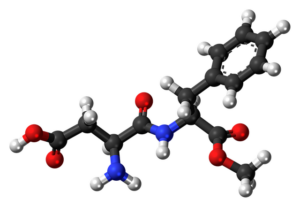The use of aspartame is not from the devil, the sweetener can be consumed in moderation
With a healthy, balanced diet, the presence of aspartame in food and soft drinks should not cause problems. The modification of the risk classification of the sweetener caused a great storm in the media, but according to the current state of science, there is no reason to panic. According to the information of the National Chamber of Agrarian Economy, since the expert committee kept the acceptable daily intake at the previous level of 40 mg/kilogram of body weight, the actors of the food industry do not have to change their recipe either. If they do decide to replace aspartame, it is only justified by consumer sentiment. Although there have been numerous articles about aspartame in the domestic and international press in recent weeks, contrary to the scaremongering, there is no reason to worry about the sweetener, at least when it comes to moderate consumption.

(Photo: Pixabay)
The International Agency for Research on Cancer (IARC), the cancer research agency of the World Health Organization (WHO) and the Joint Expert Committee on Food Additives (JECFA) of the Food and Agriculture Organization of the FAO published on July 14, 2023, the sweetener aspartame used and authorized in the food industry evaluation of its effects on health. Citing “limited evidence” of human carcinogenicity, the IARC classified aspartame as “probably carcinogenic to humans” (IARC group 2B). This means that there is no direct evidence that aspartame promotes the development of cancer in humans, but results have already been shown in animal experiments that can promote the development of cancer cells in case of intake above a certain dose.
Although the risk classification of aspartame has been changed, JECFA has at the same time confirmed the previous acceptable daily intake of 40 mg/kg of body weight
This amounts to 2.4 g per day for an average adult. According to the Hungarian Food Book, one liter of diet soda can contain no more than 600 mg of aspartame. This means that a 60 kg person would need to consume 4 liters every day to really pose a risk to them. In the case of milk-based desserts, the maximum amount that can be used is 1000 mg/kg. In the case of a 15 kg child, this means that he would have to consume more than half a kilogram of the product every day for aspartame to really pose a risk to him. So, contrary to popular opinion, the consumption of aspartame – according to the current state of science – in small quantities does not pose a danger to the human body, this sweetener can also be included in a balanced diet, but moderation should also be strived for in this case. And before passing judgment on sweeteners, we must not forget that consumers suffering from certain diseases (e.g. diabetes) have no choice but to consume foods made with these sugar substitute products.
Aspartame is mainly used in energy-reduced drinks, soft drinks, table sweeteners, instant drink powders, desserts, and dairy products in the food industry
Although manufacturers have many options to replace aspartame, since the previously established daily intake value was confirmed by JECFA, food manufacturers do not need to introduce special measures. The only reason they might consider replacing aspartame in their products is the consumer sentiment created by the classification change. Manufacturers can return to traditional sweetening ingredients such as granulated sugar, fruit juice concentrates or corn-based liquid isosugars consisting of a glucose-fructose mixture, and it is also possible to use sugar alcohols, plant extracts and other artificial ingredients. In most cases, food processors do not use these sweeteners on their own, but in combination, so that an unpleasant taste from a possible larger amount does not develop, and that the limit values can be met. International institutions constantly check and monitor scientific research and surveys and can provide consumers with up-to-date information based on this.
NAK
Related news
NAK: farmer needs assessment can help the development of irrigation training
🎧 Hallgasd a cikket: Lejátszás Szünet Folytatás Leállítás Nyelv: Auto…
Read more >NAK: agribusiness and wildlife management organizations in close cooperation
🎧 Hallgasd a cikket: Lejátszás Szünet Folytatás Leállítás Nyelv: Auto…
Read more >Related news
II. Green Gastronomy – Marketing Communication Workshop organized by the MMSZ HoReCa and Green Section
🎧 Hallgasd a cikket: Lejátszás Szünet Folytatás Leállítás Nyelv: Auto…
Read more >Retail sales of organic products in Hungary increased by 13.9% – our country is the second fastest growing market in the European Union
🎧 Hallgasd a cikket: Lejátszás Szünet Folytatás Leállítás Nyelv: Auto…
Read more >









